- The Campus Laboratory School
- Reggio-Inspired/Montessori Preschool
- The Campus Laboratory School
- Reggio-Inspired/Montessori Preschool
-
At The Campus Laboratory School, we offer two different preschool programs, Montessori and Reggio-Inspired. Both programs are guided by child-centered, inquiry based, and engaging early learning philosophies. In these multi-age classrooms, children work collaboratively with peers and individually. Children engage in meaningful explorations and conversations about their community and world. Each program is unique in its philosophy, yet common threads are evident in both. Outdoor play and learning are an integral component of our preschool programs and children have daily access to our play yard and outdoor classroom. Children in both programs also participate in music, fine arts, physical education, and world languages classes weekly.
Reggio-Inspired
-
Philosophy
The Reggio Emilia approach is an early childhood educational philosophy; it uses a child-centered, constructivist curriculum, which uses self-directed, experiential learning in a relationship-driven environment. It is based on the principles of respect, responsibility, and community through exploration, discovery, and play. Our program is inspired by this philosophy.
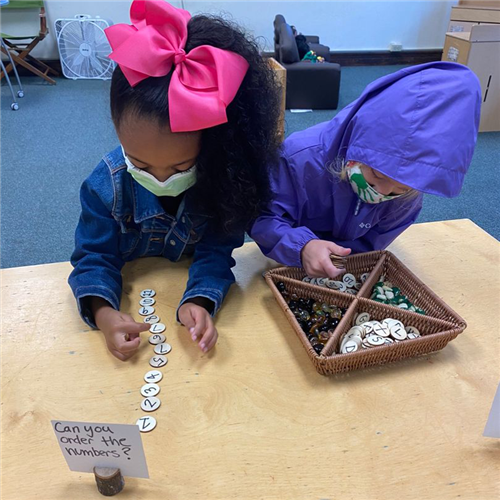
-
100 Languages
Children have 100 languages. They have multiple ways of seeing and multiple ways of being. Children are natural communicators and should be encouraged to express themselves however they feel they can. This may include words, movement, drawings, paintings, buildings, sculptures, and more.
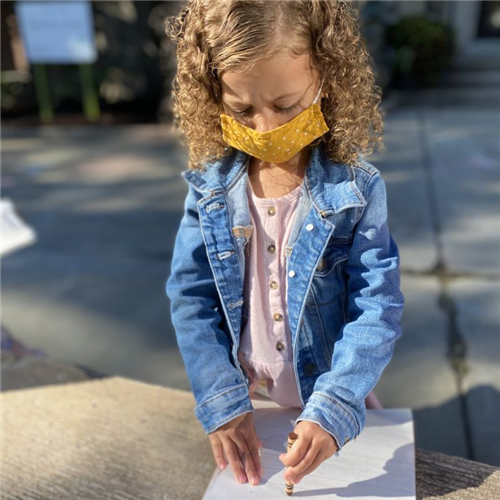
-
Collaborative Community
Children are collaborators and learn through interaction within their communities. An emphasis is placed on small groups, to support the idea that we form ourselves through interaction with peers, adults, and the world around us.
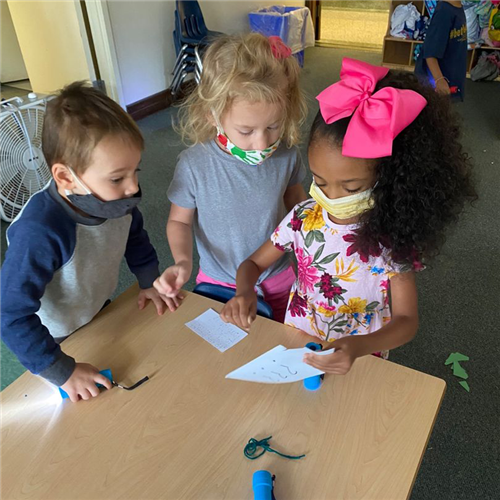
-
Child as Initiator of Learning
Children can construct their own learning. They are the main initiators of the learning process. Children should be treated as active collaborators in their education.
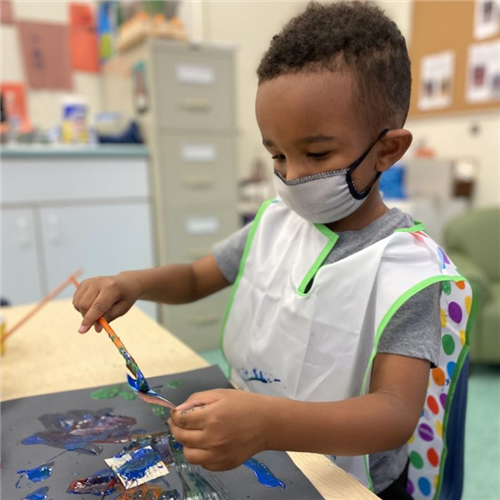
-
Teacher as Observer
Teachers are partners, nurturers, and guides who help facilitate the exploration of children’s interests as they work on short and long-term projects. The main goal for the teacher is to listen and observe the children, as well as question and listen for opportunities to encourage further exploration of a child’s interests.
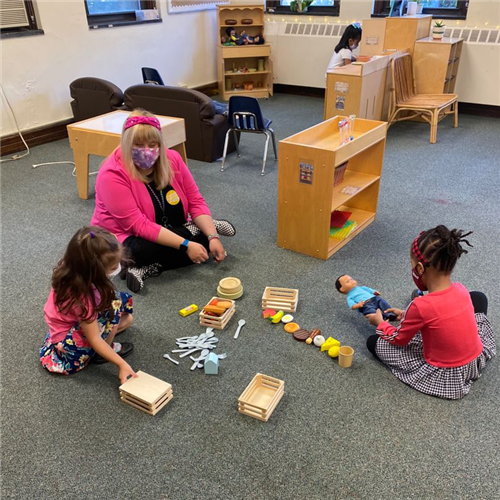
-
Classroom is Third Teacher
The classroom environment acts as the third teacher. Classrooms are carefully integrated with one another, as well as with the outside community. Classrooms also use natural furnishing to encourage real-life interactions.
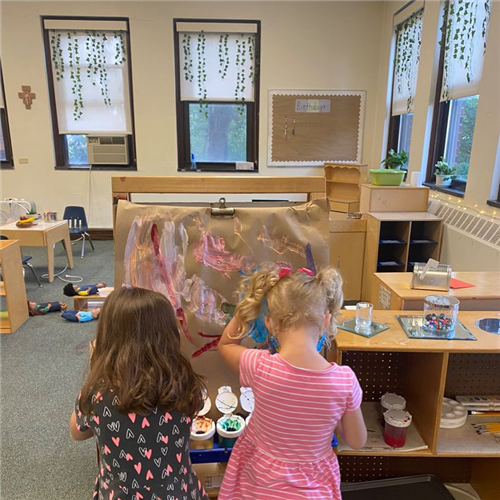
-
Parents as Partners
Parents are partners in education. Parental participation in their child’s education is a critical component of the learning philosophy. Parents are always invited to play an active role in the classroom community.
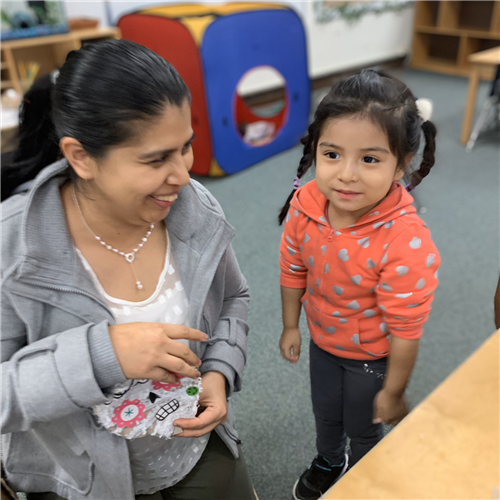
-
Documentation
Documentation is a critical component of communication. Teachers document the learning process within the classroom and transcribe the verbal language used by the children.
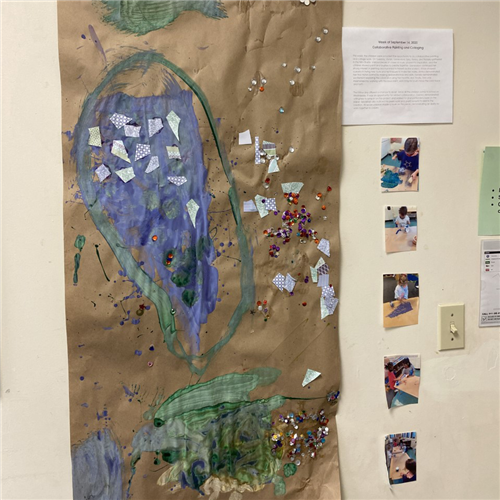
Montessori
-
Philosophy
Based on the teachings of Maria Montessori, Montessori is an educational philosophy and practice that fosters rigorous, self-motivated growth in all areas of development. The goal of the Montessori classroom is to nurture each child's natural desire for knowledge, understanding, and respect.
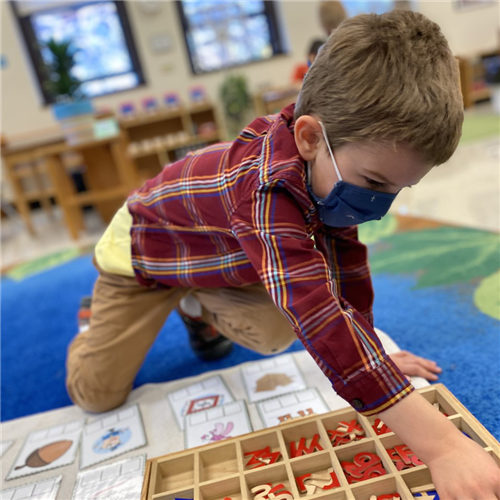
-
Montessori Materials
Montessori materials provide a concrete hands on approach to learning. Materials follow a progression allowing the child to develop an understanding of the concept.
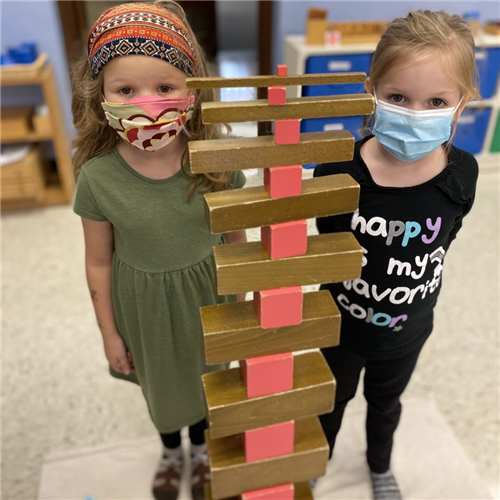
-
Multi-Age Classroom
A multi-age classroom encourages leadership development. Older children reinforce what they have learned by showing their younger classmates fostering cooperation rather than competition between age levels.

-
Child-Directed Work
Child directed work supported by the design and flow of the Montessori classroom. Children make choices for themselves leading to engagement, motivation and responsibility.
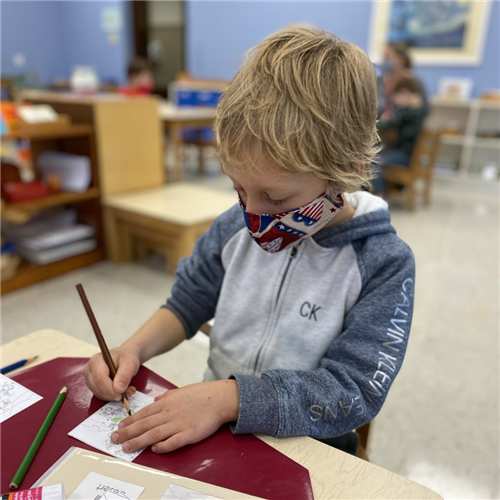
-
Uninterrupted Work Periods
Montessori classrooms have uninterrupted work periods for free choice time. Children develop a work cycle selecting an activity, performing the task as long as they desire, cleaning up and returning it to the shelf, and selecting again. Teachers support and monitor students work and provide individual and small group lessons.
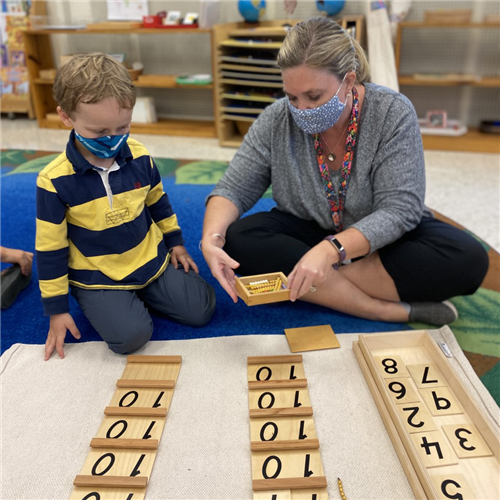
-
Peace Education
There is an emphasis on Peace Education and supporting children in building classroom community and connecting to our global community.

-
Whole Child
Montessori classrooms educate the whole child: physical, spiritual, social, emotional, and mental. All aspects of development are available for choice and considered equally important.

-
Movement
Movement is an integral part of development. Children are free to move about the classroom and explore. Teachers guide children and help them on their path of learning.


